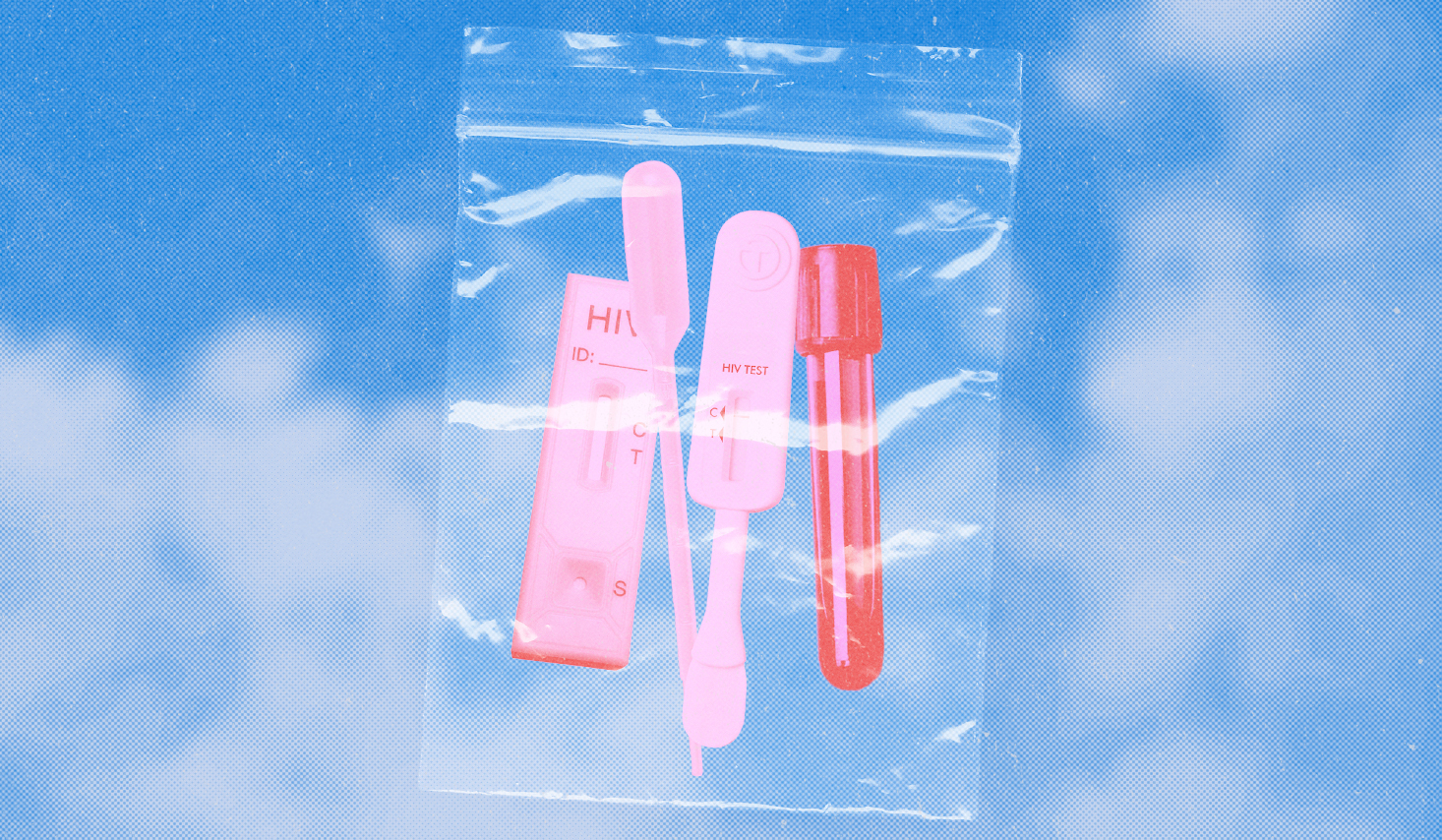 Getting tested for HIV can feel intimidating, so GAY TIMES worked with National AIDS Trust to answer five FAQs about the process.
Getting tested for HIV can feel intimidating, so GAY TIMES worked with National AIDS Trust to answer five FAQs about the process.
WORDS BY CONOR CLARK
HEADER IMAGE BY ANISA CLEAVER
SPECIAL THANKS TO NATIONAL AIDS TRUST

As the UK moves towards its goal of ending new cases of HIV by 2030, testing continues to be one of the most important ways of making this ambition a reality. Once someone knows their HIV status, it then becomes possible to adapt to it – regardless of the result. However, rates of people getting tested in England are currently 15 per cent lower than they were in 2019 (before the COVID-19 pandemic), according to the UK Health Security Agency (UKHSA). “There are around 4,500 people living with HIV in the UK who aren’t yet diagnosed and the single most important thing you can do is get an early diagnosis, because then you can get on the right treatment and live as healthy a life as anybody else,” says Daniel Fluskey, Director of Policy, Research and Influencing at National AIDS Trust, the UK’s HIV rights charity, who GAY TIMES worked with to answer five of the most commonly asked questions about testing.
Do I have to go to a clinic to get tested?
Getting tested for HIV has never been easier in the UK, with a number of options available:
- Visiting a sexual health clinic in person;
- Speaking to your GP;
- Attending an HIV testing centre;
- Ordering either a self test (which you take yourself and see the results of within a few minutes) or a postal test (which you take yourself before sending the sample off to a lab) online. These are free to order and arrive in discrete packaging.
“You don’t have to go to a clinic to get tested for HIV,” says Fluskey. “You could do if you wanted to, but you can also get tests which you can do at home yourself and then you can either see the results in about 15 minutes, or, for some tests you do at home, you can send off the sample and then you get the results sent back to you.” Home testing is becoming increasingly common in England, with the UKHSA reporting that 50 per cent of all HIV tests conducted in 2022 were done using ones ordered online – a stark increase from just 19 per cent in 2019.
Do I need to be showing symptoms or think that I’ve been exposed to HIV in order to get a test?
Definitely not. Symptoms of HIV can take many years to show, so it’s important to test regularly to either rule out having it or to start treatment as soon as possible if you do. The earlier that someone living with HIV gets on treatment the better, as it makes you far less likely to become seriously ill and means you can get the viral load to an undetectable level so you won’t pass the virus on. “You don’t have to be showing any symptoms at all to get an HIV test, in fact everybody is entitled to get an HIV test all throughout the year,” adds Fluskey. “It’s a really important thing to do as part of your sexual health and general health.”
How long should I expect to wait before getting my results back after testing?
“We know it can be a bit nerve wracking to wait for results, but wherever you get your HIV test, you’ll get the results back safely, securely and confidentially within a matter of days,” explains Fluskey. Typically, you can expect blood samples taken at clinics and testing centres to return a result in a matter of days and, in some cases, even just a few hours. Rapid testing options such as finger-prick tests will take just a few minutes to display a result. Depending on the type of kit you receive after ordering a home test, some can show results in as little as 15 minutes, though those using postal testing services will take a week or so to get back to you.
If I decide to go to a clinic for a test, can I remain anonymous?
“It’s really important to know that everybody is entitled to go to a sexual health clinic and get a test, regardless of any status around migration or housing,” says Fluskey. “If you wanted to stay completely anonymous, you could go to a sexual health clinic and you don’t even have to give your real name.”
How often should I get tested for HIV?
It’s recommended that everyone get tested at least once a year for HIV (as well as other sexually transmitted infections such as gonorrhoea and syphilis), regardless of whether or not you think you’ve been at risk of infection. Fluskey notes that testing should be slightly more frequent among those having condomless sex with new or multiple partners: “HIV doesn’t show up in your body straight away, so if you are having sex with multiple people, do get a test every three months.”
You can order free home testing kits by clicking here and learn more about National HIV Testing Week here.
The post Getting tested for HIV? 5 FAQs answered by an expert appeared first on GAY TIMES.
